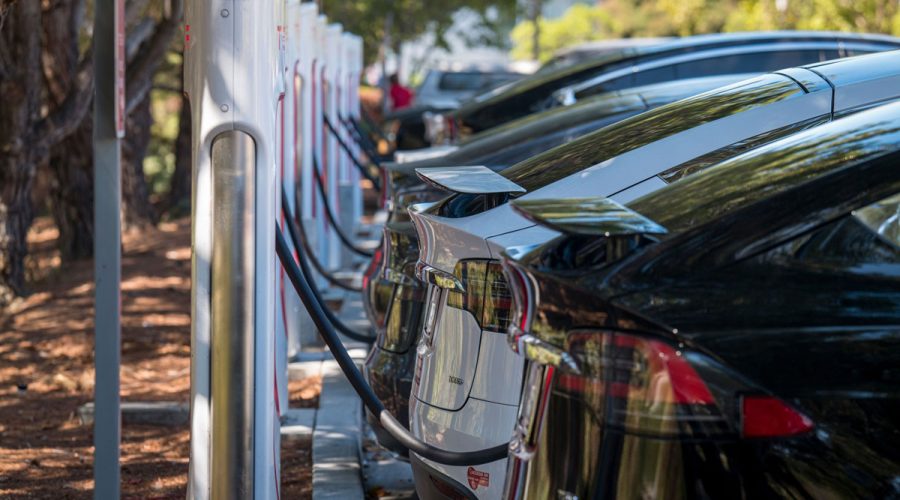Biden Presidency Will Promote Electric Car Industry
A cornerstone of President-elect Joe Biden’s campaign platform was his $2 trillion climate agenda that focuses on shifting from fossil fuel energy towards renewable energy. The Union of Concerned Scientists called Biden’s election victory a “win for science,” as Biden’s conscious and realistic approach regarding global warming sets a precedent for future administrations. Revising emissions requirements, financing the expansion of electric vehicle (EV) tax credit and manufacturing transition and establishing more charging infrastructure and employment would assist all car companies in raising their EV sales. Moreover, Biden’s vision for clean energy and green vehicles will positively impact the electric car industry, ultimately helping domestic car companies such as Tesla and General Motors sell more EVs.
To revise the current administration’s environmental rules relating to governing clean air, water, wildlife and toxic chemicals, Biden will institute existing policies from President Obama’s tenure while also implementing new strategies that combat global warming. President Trump’s changes to American environmental policy include withdrawing from the Paris Climate Agreement, abandoning the Clean Power Plan, and allowing coal power plants to disregard regulations on capturing and storing carbon dioxide emissions. Changing these policies under the Biden administration would bring more value to car companies that are stocking up on EVs. Operating in an economy that desires energy-efficient methods to guide human activity leads to these environmentally friendly companies having a larger market share in their respective industries.
Last year, both parties in Congress agreed on an extension of the federal EV tax credit consisting of a manufacturer cap increase from 200,000 to 600,000 vehicle deliveries and the reinstatement of a tax credit for fuel-cell vehicles. As a result, consumers are more inclined to buy EVs while car companies have a larger cap of eligible sales to fill. Unfortunately, this effort was denied by the White House. Thanks to previous bipartisan support for this bill, Biden’s administration will endure little to no obstacles preventing them from assisting these EV manufacturers when the bill is proposed again.
Biden’s plan to build at least 500,000 public charging stations throughout the country and increase EV battery-related research and development (R&D), which will create one million jobs in the U.S. automotive industry, will benefit car companies. In addition to the massive influx of resources aiding EV production, Biden and Sen. Chuck Schumer’s “Cash for Clunkers” style plan provides rebates and tax incentives for consumers to trade in their gas cars for EVs. This proposal, backed by environmentalists, laborers and large automakers, benefits all domestic companies currently building EVs, especially Tesla and General Motors. Sierra Club, United Automobile Workers, International Brotherhood of Electrical Workers, Ford and General Motors are all in favor of this transaction.
According to LMC Automotive, automakers will have 121 EV models for sale by 2025. Automakers plan on producing more than 1 million EVs by 2024, which is over four times the number of EVs sold last year. The only concerns for these car companies are getting more people to transition from their gas cars to electric cars and driving down manufacturing costs. Fortunately, the expansion of EV tax credits would erase any uncertainty for Tesla and GM, as these companies would easily surpass the 200,000 credit maximum.
General Motors Vice President Ken Morris stated the company’s willingness to work with the Biden administration by adopting their EV policy. GM’s $2 billion investment consists of converting three U.S. assembly plants to make EVs, and the company has already mapped out its plans for building the first fully electric Cadillac, Hummer pickup EV and a larger edition of the Chevy Bolt. And for Tesla, no other EV company achieves more. Garrett Nelson of CFRA Research highlighted how Biden’s renewable energy plan could increase battery-powered cars market share from 2% to 25% of new car sales by 2030. With Tesla’s $390 billion market cap, the Cybertruck and a two-seat roadster coming out by late 2021, Tesla serves as the industry leader in gross margins and R&D.
Joe Biden’s ambitious goal of transitioning from gas cars to EVs ensures a more sustainable way of life and will lead to more employment opportunities. Car manufacturers such as Tesla and GM have the most gain from Biden’s renewable energy platform, which will eventually lead to other car manufacturers producing battery-powered cars.
Mikael La Ferla, GSB ’23, is a business administration major and information systems minor from Philadelphia, Penn.













































































































































































































